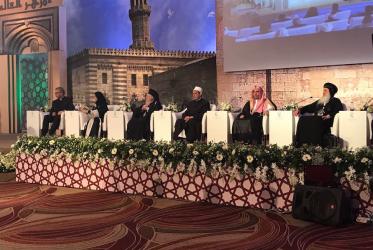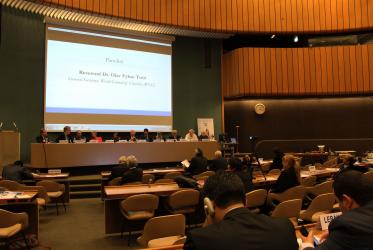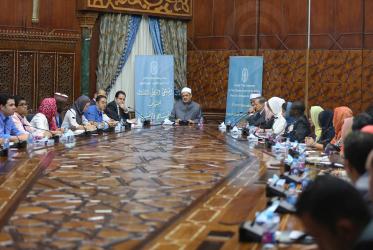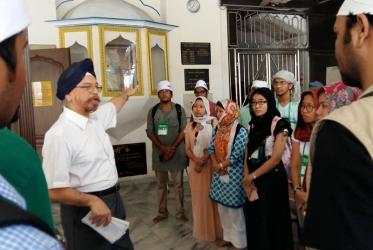Displaying 61 - 80 of 113
Islam and Christianity: finding the common ground
16 March 2017
WCC gravely concerned over Israel’s travel ban
09 March 2017
Plans for 2017 decided by WCC Executive Committee
01 December 2016
Grand Imam calls for collaboration against violence and poverty
06 October 2016
WCC welcomes Grand Imam of Al-Azhar
01 October 2016
WCC general secretary reflects on peace in Palestine and Israel
20 September 2016
Seminar will address youth engagement, religion and violence
19 August 2016
Religion: Way of war or path to peace?
30 June 2016












